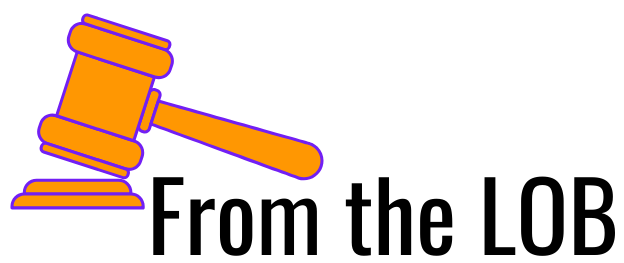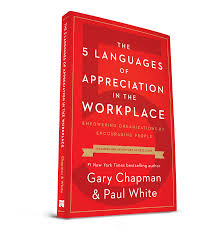| | | | | | A Message from the Executive Director Welcome to the introductory edition of The HES Newsletter! This is a new feature authored and curated by HES staff for our donors, advocates, and followers. Once a month, we will send content that we hope is informative, short and sweet yet thought provoking, and ultimately that keeps you informed on what we know about health equity. The first two newsletters, February and March, will go to a broad list of people. However, starting April, the newsletter will only go to donors and subscribers. Thus, we encourage you read and enjoy BUT don’t forget to click that subscription button and don’t forget to donate. | | | | | | Health, health care, and health equity are complicated! There are a lot of terms, phrases, acronyms, etc… that are often said and yet only sometimes defined. This can be challenging in the quest to achieve health equity as it leaves the reader/listener to infer meaning and it unfairly assumes knowledge. Well, we have a solution for that! Each month we will define a key term related to advancing health equity. This could be a term, a phrase, an idea, a concept… but ultimately, we want to make sure we are all speaking the same language. | | | | | | Health Equity (helTHˈekwədē) is when all persons have a fair and impartial chance at attaining their optimal health. Fair and impartial means that no person or persons have a greater or lesser chance at attaining optimal health due to barriers related to social or economic demographic factors. To reach this goal, health equity must be seen as a process, a way of being and doing, and an endpoint. By way of process and way of being/doing, we must actively work to ensure that all persons have what they need to achieve health, regardless of their race or ethnicity, where they live, where they work, or how much money/assets they earn (income) or have (wealth). The endpoint is everyone living their healthiest and best life. In practical terms for HES, we are focused on advancing health equity through the lens of racial equity. This translates to focusing on methods and strategies that ensure people who have been oppressed, discriminated against, and thus have suffered poor health consequences, have barriers removed that have contributed to and exacerbated their health and health outcomes. The evidence shows us that the place for greatest advancement of health equity, particularly in Connecticut, is focusing on racial and ethnic minority populations. When you combine other social factors with race and ethnicity, i.e. gender, sexuality, disability, socio-economic status (education, income), and/or geography, challenges to attaining the best health status are further complicated. Hence our vision for a Connecticut where everyone can attain optimal health regardless of race, ethnicity, or socioeconomic status. | | | | | |  | (LOB= Legislative Office Building) Doulas One key element to maternal health equity is increasing access to doula care services, which can mitigate biases in the doctor’s office or delivery room. A doula is a non-medical professional, who provides emotional, physical, and informational support to a childbearing person who is expecting, is experiencing birth, or has recently given birth. A doula furthers health equity and reproductive justice by ensuring a birthing person has a safe and informed birthing experience, providing comfort, care, and safety before, during, and after birth. Bills to establish certification and Medicaid reimbursement processes for doulas were raised by the Human Services and Public Health committees. The Governor’s Proposed Budget Adjustments The proposed budget adjustments for fiscal year 2021 are unlikely to have a significant impact on health equity. The budgets for the Medicaid programs and Department of Public Health are relatively flat, preserving access to Medicaid and school-based health centers. The Office of Health Strategy would see an increase to carry out Executive Order #5, concerning cost growth in health care. We will be following the cost growth work closely; so, stay tuned. | | |  |  | Last month, staff kicked off the inaugural Health Equity Solutions Book Club with The 5 Languages of Appreciation in the Workplace: Empowering Organizations by Encouraging People by Gary Chapman and Paul White. As the authors demonstrate, putting people at the center and conveying appreciation in the way they prefer is not as straightforward as it seems. It requires significant self-inquiry to define what we value and why. The book provided a framework to discuss the various ways that team members receive appreciation (Words of Affirmation, Quality Time, Acts of Service, Tangible Gifts, and Physical Touch) and an accompanying assessment to help us identify our own primary language of appreciation and potential “blind spots,” defined as the language that an individual is least likely to practice or comfortable expressing. As a fairly new team, reading this book allowed us to collectively reflect on what authentic appreciation looks like at HES and offered concrete ways to approach communication so that the appreciation that we intend to express is well-received. | | Up Next: The American Health Care Paradox: Why Spending More is Getting us Less by Elizabeth H. Bradley and Lauren A. Taylor. Want to help us read more? See our desired list of reading material HERE | | |  | Improving Medicaid administrative processes What are the barriers to enrolling in and staying enrolled in Medicaid in Connecticut? In collaboration with CLASP, CBPP, and CT Voices for Children, Health Equity Solutions ran focus groups with Medicaid enrollees and enrollment assisters in three cities. We co-published the results and recommendations to streamline the renewal process in particular. The recommendations included: streamlining IT systems, linking renewals across social services, and improving reporting on those who lose Medicaid due to administrative hurdles. In February, we shared these proposals with staff from the Department of Social Services, the Office of Health Strategy, the Office of Policy and Management, and the Governor’s office. More on this in the months ahead. | |  | | | | | | | | | | | | | Health Equity Solutions
175 Main Street 3rd Floor | Hartford, Connecticut 06106
860.461.7637 | info@hesct.org | | | | | | | | | | | |